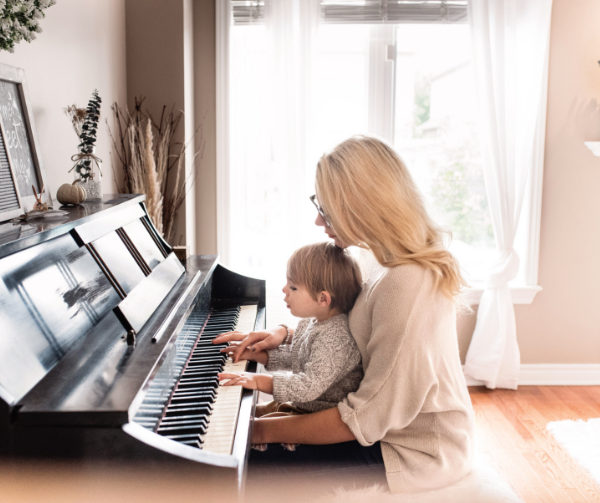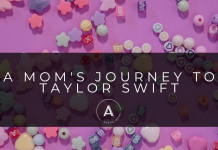
When asked why culture is important to improving human relations, world-renowned cellist Yo-Yo Ma replied, “Music, arts and sciences, and the humanities—culture—have always been fundamental. They meet a most basic need: to understand. Culture turns the ‘other’ into ‘us.’” (source)
On June 21, in over 120 countries, World Music Day is celebrated across the globe the same way it has been for nearly four decades — live music for all, in the streets and public places for anyone to hear and participate. Originally created in France in 1982, Fête De La Musique (or, Festival of Music) is a musical holiday initiated by France’s Ministry of Culture to encourage the general public to make music rather than simply listen. (source) World Music Day serves as a valuable reminder to each of us that music transcends our human differences — what is required to create music is not a belief system or a cultural way of life, but simply a willingness to connect with other human beings.
Participating in music benefits not only adults across cultural borders, but also the growing child. Many studies have now proven the valuable effects of music on early childhood development. In one such study, The Brain and Creativity Institute (BCI) at USC in 2012 concluded “the auditory systems of children in the music program were maturing faster in them than in the other children. The fine-tuning of their auditory pathway could accelerate their development of language and reading, as well as other abilities – a potential effect which the scientists are continuing to study.” (source) Other similar studies have shown “in addition to promoting language development, music has a positive effect on the development of other cognitive functions including attention, visual-spatial perception, and executive function.” (source)
Check out this Ted Talk discussing the power of music that transforms children’s brain development.
Ways Music Can Influence Your Child:
- Creativity and Self-Expression — Among parent’s highest priorities for their children is the ability to express themselves.
- Social Development and Teamwork — Music is a form of social communication and bonding.
- Physical Development — Music is one of the few activities that engages every part of the brain. The fine motor skills and muscular development required to play an instrument well is so intense that it is among the rare skills resulting in visible changes on brain scans.
- Mathematical and Scientific Understanding — Music provides ample opportunity to strengthen mathematics and scientific skills in an artistic context.
- Culture and Historical Understanding — From the very first lesson, teachers can engage students in learning music that relates to their world and seeks to broaden his horizons.
- Appreciation for Art — For many people, great art speaks powerfully to them on its own, but that isn’t the case for everyone, especially children. For almost anyone, however, participating in the creation of art sparks appreciation: either it helps them come to appreciate something, or it deepens their appreciation.
- Connection to Family — one of the number one sources of joy for parents is when their kids gladly take out their instruments when they come home for the holidays.
- Self-Esteem — Self-esteem does not come from praise or outside recognition. It comes from the ability to perform a challenging task well. Knowing they have worked long and hard to achieve a skill is one of the greatest feelings anyone can have.
- The Development of Life Skills — Of all the many benefits music study non so great as the journey of self-discovery. Music can be an ideal stone upon which to sharpen our will and our drive to develop curiosity, problem-solving skills, dedication, perseverance, and the habit of deliberate practice, which are all critical to mastering any skill.
This year in honor of World Music Day, consider making music together a valuable part of your family time. Try these three ways to implement music into your summer routine:
Find a Music and Movement Class in Your Area
Create music with your child and enjoy the benefits of music and movement with a variety of classes offered across the Austin area. Discover a class in your area in the Ultimate Guide to Mommy & Me Activities in Austin.
Try an Instrument Petting Zoo
This summer, visit the Austin Central Library for weekly presentations of the Austin Symphony Art Park. Arrive early to participate in the instrument petting zoo. Children can see, touch, and hear instruments, and also speak with musicians. Visit the Austin Central Library event page for more information.
Make Music at Home
The Learning Journey offers a variety of musical toys for young children to make music at home. Baby Bongo Drums are perfect for babies over 12 months, with sound effects and demo songs to help your toddler create their own beat. Little Tunes Tambourine has sound effects, bright lights, and an auto off function. Little Music Maracas has two play modes, bright lights, and sturdy handles for little hands.
Navigating the waters of today’s turbulent political and social issues can be difficult for each of us, and much more so for younger children. World Music Day is an opportunity for each of us to create music with one another, but it also allow us to learn from one another. When the stage is opened to all and we share in the creation of music, there is no predicting what sound may come from a united purpose.
As Yo-Yo Ma explained, “I think culture can do everything to dispel fear because fear makes us smaller and culture makes us larger.” (source)









